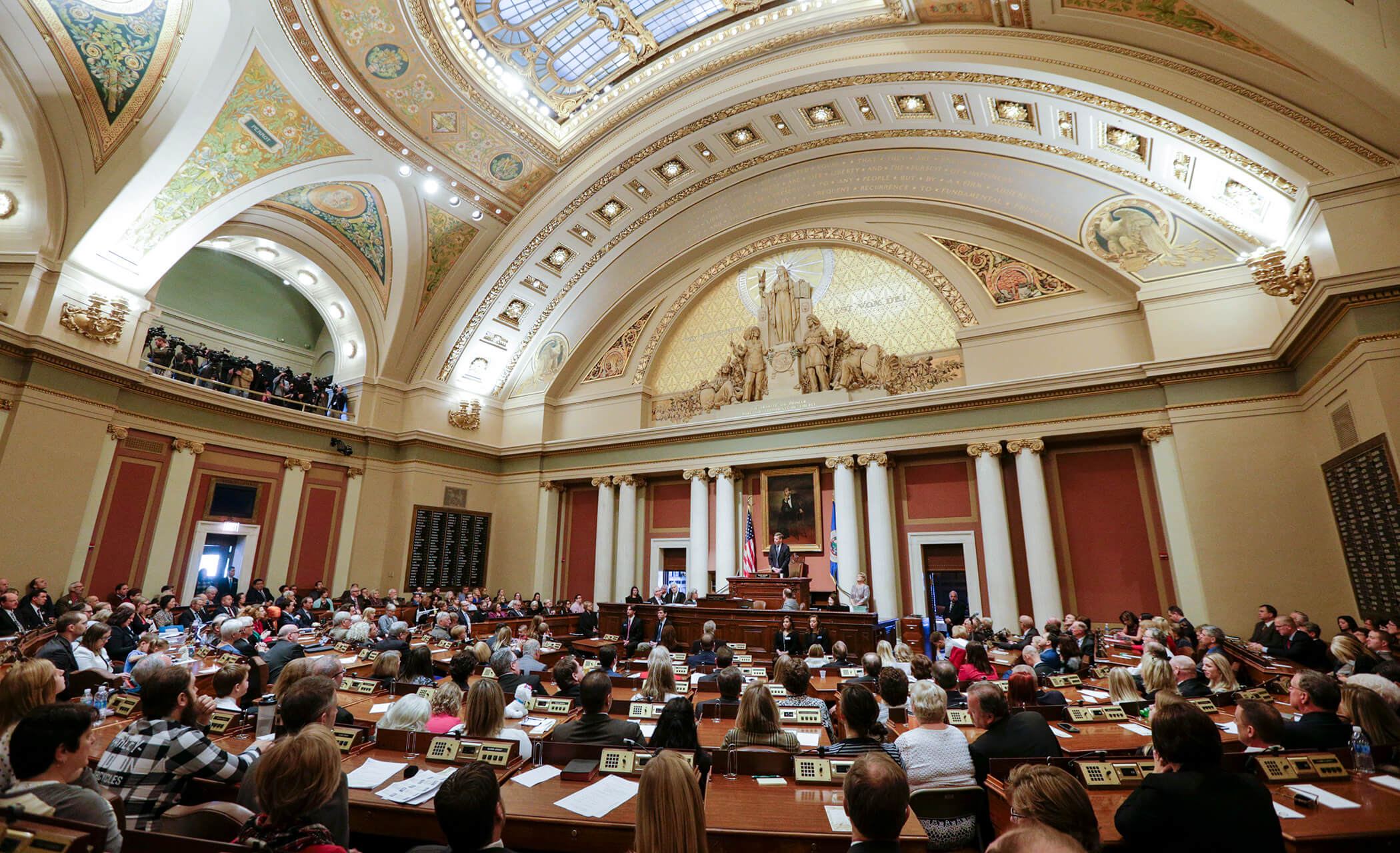 Reading Time: 3 minutes
Reading Time: 3 minutes
By Amanda Bilek, senior public policy director for the Minnesota Corn Growers Association
The Minnesota legislature adjourned at midnight on May 20th to meet its constitutional adjournment deadline, but most of the work to finalize a two-year state budget was left unfinished. After nearly a week of private negotiations among Governor Tim Walz, House Speaker Melissa Hortman and Senate Majority Leader Paul Gazelka, the leaders announced a broad global agreement for a two-year state budget at a little over $48 billion.
While the Sunday night agreement included the broad outlines of a budget deal, conference committees meeting to reconcile differences House and Senate positions still had significant policy issues to resolve on top of receiving a final budget target to meet. With that, there was a lot to be done before the midnight adjournment deadline the following day.
Before Monday’s adjournment, they were able to complete work on the higher education budget. The agriculture, housing and rural development conference committee report was posted and passed by the Senate 48-17, but time ran out in the House and the bill was laid on the table.
Legislative leaders, agency commissioners and House and Senate committee chairs have continued to meet to resolve disagreements on the remaining budget bills to prepare for an anticipated special session later this week, but no official announcement has been made yet.
Since time ran out to adopt the agriculture, housing and rural development budget, it joins a long list of other budget bills to be finalized during the special session including: environment and natural resources; health and human services; transportation; jobs, economic development and energy; E12 education; public safety; state government plus taxes, legacy and capital investment.
The spreadsheet and bill text for the special session agricultural, housing and rural development bill have been posted, and a hearing is scheduled for May 22 to review the agreement in advance of final consideration before a special session.
Here is a look at what is included:
Funding for the Minnesota Department of Agriculture (MDA) is a little over $107 million for the next two year budget (FY2020 and FY2021), referred to as a biennium. This is a little under a $4 million increase over the February forecast and a little less than a $1 million increase from the previous biennium. The budget also includes funding for the Board of Animal Health, the Agricultural Utilization Research Institute and funds $40 million in the biennium for border-to-border broadband grants through the Minnesota Office of Broadband.
A key legislative priority for the Minnesota Corn Growers Association (MCGA) was funding the Agriculture, Research, Education and Extension Technology Transfer program (AGREETT) at the University of Minnesota. Established in 2015 by the Minnesota legislature with the goal to achieve long-term sustainability in Minnesota, the program has hired 21 faculty members in Extension and the colleges of Veterinary Medicine and Food, Agricultural and Natural Resources Sciences. You can learn more about AGREETT faculty here.
MCGA is pleased to see baseline funding for AGREETT maintained at $9.3 million per year for the next two-years, and approximately $5 million is maintained in undesignated appropriations. A multi-sector, interdisciplinary advisory panel will work with the University of Minnesota and MDA to provide direction on the undesignated funds in a way that prioritizes research, extension and infrastructure needs. MCGA appreciates the legislature continuing this investment in long-term sustainability for Minnesota agriculture.
A few other highlights for corn famers:
- Extends the Agricultural Fertilizer Research and Education Council to 2025.
- Changes to the grain buyers and grain warehouses statutes provided by the MDA grain advisory group, which was convened to examine strategies and increased financial protections as a result of recent elevator failures. It should be noted the changes included in the bill are not effective until July 1, 2020.
- $900,000 ($450,000 each fiscal year) increase for noxious weed and invasive plant program at MDA to help respond to emerging threats like palmer amaranth.
- $5 million ($2.5 million each fiscal year) for Bioincentive program incentive payments and lower eligibility threshold to enable smaller bio-based fuel and chemical projects to qualify.
- $500,000 ($250,000 each fiscal year) for statewide mental health services through Minnesota State colleges and universities.
- $534,000 ($267,000 each fiscal year) for farm advocate services at MDA.
Of course with a long list of budget bills to finalize, we don’t have the final details on several other MCGA policy priorities including taxes, environmental permitting, transportation, healthcare and Clean Water Fund spending. Look for more details on each in next week’s Legislative Update from St. Paul.
Be sure to follow the MCGA blog and its social channels (Facebook, Twitter) throughout session for updates from the Capitol. You can also follow me on Twitter (@AjBilek).


